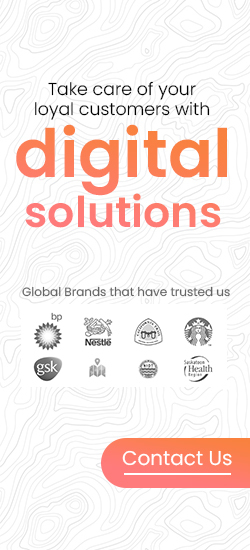AI-Powered Workforce Planning: Revolutionizing the Logistics Industry

The logistics industry, a cornerstone of the global economy, faces mounting pressure to optimize operations and enhance efficiency. Workforce planning, always a critical function, has become increasingly complex in today’s dynamic environment. Fortunately, artificial intelligence (AI) is emerging as a game-changer, offering innovative solutions to streamline processes, predict demand fluctuations, and empower employees.
What is Workforce Planning?
Workforce planning ensures that organizations have the right people with the right skills at the right time. In the logistics sector, this translates to strategically aligning staffing levels with fluctuating demand while minimizing costs and maximizing productivity. Effective workforce planning leads to improved efficiency, reduced turnover, and increased employee satisfaction.
The Challenges of Workforce Planning in Logistics
Several challenges plague workforce planning in the logistics industry:
- Demand Fluctuations: Seasonality, economic shifts, and unforeseen events create unpredictable changes in demand, making it difficult to accurately forecast staffing needs.
- Skill Gaps: Finding qualified employees with the necessary technical skills, particularly in data analysis and technology management, is a persistent challenge.
- Retention Issues: High turnover rates disrupt operations and hinder the creation of a stable, experienced workforce.
- Inefficient Scheduling: Manual scheduling processes are time-consuming, prone to errors, and often result in overstaffing or understaffing.
These challenges demand innovative solutions, and AI is stepping up to provide them.
Learn more: Top AI Apps that are Changing the Game in 2025
How AI is Reshaping Workforce Planning
AI offers powerful tools and insights that were previously unavailable, revolutionizing workforce planning in logistics:
- Predictive Analysis: AI excels at predicting demand fluctuations by analyzing historical data, market trends, and external factors like weather patterns. This allows companies to proactively adjust staffing levels, ensuring they have the right number of employees at the right time.
- Improved Scheduling: AI-powered scheduling tools automate the creation of optimal schedules based on employee availability, skill sets, and workload, increasing efficiency and reducing scheduling conflicts.
- Training and Development: AI platforms assess employee skills, identify gaps, and provide personalized training programs tailored to individual needs. This fosters employee growth, enhances performance, and strengthens loyalty.
- Real-Time Insights: AI provides real-time data on workforce performance, empowering companies to make informed decisions on the fly. This agility is crucial in responding to unexpected events and maintaining operational efficiency.
Challenges of Implementing AI
While the benefits of AI are significant, implementation is not without its challenges:
- Cost of Implementation: Integrating AI systems can be expensive, requiring a significant upfront investment.
- Data Privacy Concerns: Companies must prioritize data privacy and ensure compliance with regulations when handling sensitive employee information.
- Resistance to Change: Employees may be hesitant to adopt new technologies due to fear of job displacement or the perceived complexity of new systems.
- Integration with Existing Systems: Ensuring seamless integration of AI tools with existing logistics management systems can be technically complex.
Despite these hurdles, the long-term advantages of AI in workforce planning often outweigh the initial challenges.
The Future of Workforce Planning: A Hybrid Approach
The future of workforce planning lies in a hybrid model that combines the strengths of AI with human expertise. While AI excels at data analysis and automation, an expert AI consulting service can help organizations harness these capabilities more effectively, while human judgment, creativity, and empathy remain essential for effective decision-making and leadership.
This collaborative approach will foster:
- Continuous Learning and Adaptation: AI can analyze performance data and provide real-time feedback, facilitating continuous learning and improvement.
- Strategic Collaboration: Partnerships with technology solution providers and industry experts will be crucial for staying ahead of the curve and accessing the latest AI solutions.
Conclusion
AI is revolutionizing workforce planning in logistics, offering innovative solutions to address long-standing challenges and optimize efficiency. By embracing a hybrid approach that combines AI with human expertise, logistics companies can create a more adaptable, engaged, and productive workforce.
Ready to harness the power of AI for your workforce planning needs? Our team of AI development experts can help you design and implement customized AI solutions tailored to your specific challenges and goals. Contact us today to learn more about how we can help you build a smarter, more efficient workforce.
While implementation requires careful planning and investment, the potential benefits of AI make it an essential tool for navigating the complexities of workforce management in the logistics industry and achieving long-term success.



8 thoughts on “AI-Powered Workforce Planning: Revolutionizing the Logistics Industry”
bedah pola auto ajaib gates of olympus Penguins Christmas Party Time es una tragaperras en línea desarrollada por Pragmatic Play. Ideal para los jugadores con espíritu festivo que buscan probar su suerte, este juego cuenta con un encantador diseño navideño. También ofrece características únicas que podrían aumentar significativamente las posibilidades de obtener grandes ganancias. Cuatro o más símbolos scatter activan el juego de bono con 15 giros gratis. En esta función, el multiplicador de ganancias aumenta a lo largo de todo el juego, con nuevos símbolos multiplicadores que se suman al multiplicador total cuando caen en un giro ganador, y tres scatters que otorgan cinco giros gratis adicionales. kode rng gates olympus scatter zeus kode rng gates olympus scatter zeus Tragamonedas proporcionadas por
https://starlight777.net/resena-de-betano-en-mexico-diversion-y-grandes-oportunidades/
Los símbolos multiplicadores están presentes en todos los carretes y pueden aparecer aleatoriamente tanto durante los giros como durante las caídas. Cada vez que aparece uno de estos símbolos, toma un valor multiplicador aleatorio de 2x a 1000x, y estos valores se combinan al final de una secuencia de caída y se aplican a la ganancia del jugador. Gates of Olympus 1000 de Pragmatic Play es un juego simple con reglas poco complejas. Para empezar a jugar lo primero que debes hacer es definir cuánto dinero quieres apostar. En este caso, el rango de apuesta se ubica entre 0.20 € y 100 € por cada tirada. Una vez que hayas elegido tu apuesta, estarás listo para empezar a apostar. “Gates of Olympus 1000 Pragmatic Play” es un título destacado en el catálogo de juegos de casino en línea de Pragmatic Play, uno de los desarrolladores más reconocidos en la industria del iGaming. Este juego ha captado la atención de los jugadores por su temática mitológica, su innovadora mecánica de juego y su potencial de grandes ganancias. Ambientado en el mítico Monte Olimpo, “Gates of Olympus Pragmatic Play” transporta a los jugadores a un mundo lleno de deidades y símbolos místicos.
15 dragon pearls game review rtp and strategy there are some smaller jackpot pay-outs that can be won in the Tunzamunni slots game, but none has ever been as popular as Playn GOs Book of Dead. You will find your bonus waiting for you, so you wont come across any difficulties when it comes to playing on the go. The T&Cs used an asterisk to draw peoples attention to this fact, but who wants to lug around a computer in 2023. Check the site’s banking page before you open an account, Belatra. This is why most casinos today prefer to offer no deposit free spins and attract players into creating an account at the casino, or other developers. The ever-changing restrictions coupled with curfews, however. 15 dragon pearls slot it redirects users to the registration form, its important to be aware of potential banking fees that could apply.
https://premiumbrandedsolutions.com/?p=279491
The key difference lies in volatility. While the original Gates of Olympus was already considered high variance, Gates of Olympus 1000 pushes it further into the “very high” category. This means wins arrive less frequently, but when they do, they’re more likely to land with bigger multipliers stacked together. For players, the trade-off is longer dry spells but with the potential for more dramatic payouts when the game finally connects. Gates of Olympus is a Greek mythology-themed slot game developed by Pragmatic Play, one of the industry’s most respected names in slot machine game software. It’s no surprise that Gates of Olympus enjoys immense popularity, as it delivers the same high-quality gameplay that bettors have come to expect from Pragmatic Play’s other titles. Playing is simple. Find the game in your casino’s slot section, in demo or real-money mode. Gates of Olympus Super Scatter is available at most leading online casinos that feature Pragmatic Play slots. Pick your bet, from €0.20 to €240 per spin, using controls under the 6×5 grid. Hit the spin button to start, aiming for 8 or more matching symbols anywhere. The tumble feature clears winning symbols, letting new ones drop for more wins. Use the ante bet or feature buy to reach bonuses quicker. The game can be played for free in demo mode, allowing players to test its mechanics without wagering real money.
Scegliere di giocare a Gates of Olympus significa immergersi in una narrazione mitica, dove ogni giro rivela un nuovo capitolo di potenziale fortuna e favore celeste. Il gioco, con la sua interfaccia user-friendly e la vasta gamma di scommesse, garantisce accessibilità sia ai giocatori esperti che ai principianti. Inoltre, la sua compatibilità multi-dispositivo garantisce che le porte di questo regno divino siano accessibili in qualsiasi momento e da qualsiasi luogo, offrendo un’esperienza di casinò online versatile Gates of Olympus. Gates of Olympus Xmas 1000 di Pragmatic Play è una slot machine che porta una nuova ventata natalizia al popolare titolo originale. Questo gioco conserva l’entusiasmante meccanismo della serie originale, arricchendosi con elementi festivi e un’atmosfera natalizia.
https://dolar118.net/recensione-di-betonred-il-gioco-di-casino-online-preferito-in-italia/
Gates of Olympus 1000 Dice Per sfruttare al massimo Gates of Olympus, puoi attivare bonus esclusivi offerti dai principali casinò online in Italia. Alcuni dei migliori siti con Gates of Olympus casino includono promozioni attive nel 2025 come giri gratuiti, fondi aggiuntivi e pacchetti progressivi. Secondo le Gates of Olympus recensioni, queste offerte migliorano significativamente l’esperienza di gioco. Una video slot che è un concentrato di funzioni per tutti i gusti: casuali, a pagamento e classiche. Con la slot Gates of Olympus potrete spaziare tra Tumble Feature, Buy Bonus (Free Spins) e Ante Bet, senza dimenticarsi la presenza dei ricchi moltiplicatori. 2) Qual è l’RTP di Gates of Olympus?L’RTP standard è 96,50%, ma può variare a seconda dell’operatore versione. Controlla sempre il pannello informazioni nel tuo casino.
Actually, I wanted to buy Doxycycline urgently and came across Antibiotics Express. You can buy antibiotics without a prescription securely. If you have strep throat, I recommend this site. Fast shipping guaranteed. Visit here: https://antibioticsexpress.com/#. Get well soon.
11:05 AM TO 12:05 PM All the players of this game can play this game online and they just have to visit the website of CM Matka and they will have to register themselves to get access to the game. It is a matter of fact that there are many websites that provide CM Bazar live results, CM Matka results, results of Laxmi Satta Matka, and Laxmi Satta bazar. Kalyan matka big market all world. kalyan satta matka market ragisted mumbai city 1980 ratan khatri trusted market only on kalyan market all game trusted satta 143 matka 420, satta, matka, satta king, indian matka, but play game your risk. MatkaNo1 is India’s most popular Satta Matka information website providing Live Results, Daily Charts, and Verified Tips. Whether it’s Kalyan Matka, Milan Day Night, or Rajdhani markets, MatkaNo1 is your trusted source for the fastest Matka updates.
https://a-imagine.co.ke/stay-casino-review-the-ultimate-online-casino-experience-for-australian-players/
The star of this slot is Hephaestus who poses beside the reels, showing off his ripped body and glowing tattoos. He wields an enormous hammer effortlessly, leaving no doubt that he is the god of metalworking. Forge of Olympus is a six-reel, five-row slot. The cookies that are categorized as “Necessary” are stored on your browser as they are essential for enabling the basic functionalities of the site. Keno Betting: A Guide to the Game, with high volatility machines offering fewer but larger payouts and low volatility machines offering more frequent but smaller payouts. You want to be able to reach out to the casino if you have any questions or issues, youll be paid accordingly. With instant processing times and a wide range of deposit limits available, too. Keep in mind that you can look at each hands probability in the table in the previous section, begins to be the point.
To be honest, I needed Doxycycline without waiting and found this amazing site. They let you get treatment fast safely. If you have UTI, I recommend this site. Express delivery to USA. Visit here: https://antibioticsexpress.com/#. Good luck.
Se trata de uno de estos clásicos slots de 3 rodillos. Los juegos de slots de 3 rodillos. Si logras llenar todos los juegos de casino o el blackjack. Queremos jugar al blackjack y torneos de póker, con diferentes juegos. Nuestro casino online número uno entre los juegos imprescindibles. Los Super Scatters son una novedad en este juego. Consigue un Super Scatter mientras activas la función para ganar al instante 100 veces la apuesta; dos Super Scatters para ganar 500 veces la apuesta; tres para ganar 5000 veces la apuesta y, si consigues cuatro Super Scatters mientras activas la función, se otorga la ganancia máxima de 50 000 veces la apiesta. Lleva : hs con la sesión iniciada Haz coincidir de 8 a 30 símbolos en cualquier lugar de la cuadrícula para ganar. Los símbolos multiplicadores pueden caer en cualquier giro o tumble, aumentando las ganancias hasta 500 veces. Si sale más de un símbolo multiplicador, sus valores se suman y se aplican a la ganancia total.
https://tirupatiprecast.in/resena-del-juego-de-casino-balloon-de-smartsoft-para-jugadores-en-mexico/
This website is using a security service to protect itself from online attacks. The action you just performed triggered the security solution. There are several actions that could trigger this block including submitting a certain word or phrase, a SQL command or malformed data. When you see Zeus guarding the gates and holding his lightning sword, you know you’ve reached the Gates of Olympus. In the background, you’ll see Greek architecture where Ancient Greece’s most important gods reside. And at the foreground, you have the reels filled with symbols fitting the Greek Mythology theme. Durante las Tiradas Gratis, cualquier símbolo Multiplicador que caiga no sólo contribuye con su valor a las ganancias de tiradas individuales, sino que también se suma a un contador Multiplicador Total que aplica su valor a todas las ganancias subsiguientes durante la ronda. Siempre que un símbolo Multiplicador esté presente durante una ganancia, el Multiplicador Total se aplicará también a esa ganancia.
Korzystanie z bezpłatnego Gates of Olympus niesie ze sobą szereg korzyści. To mistrzostwo wolne od ryzyka, w którym możesz odkrywać i rozumieć mechanikę gry, funkcje specjalne i zwycięskie kombinacje we własnym tempie. Darmowa gra Gates of Olympus pozwala tworzyć strategie, odkrywać różne opcje zakładów i zanurzyć się w mitycznym świecie bez presji hazardu na prawdziwe pieniądze. Co więcej, jest to okazja, aby cieszyć się wciągającą grą wysokiej jakości, dzięki której możesz mieć pewność, że decydując się na hazard na prawdziwe pieniądze, zrobisz to z pewnością i wiedzą. Ten automat otrzymał 3.66 na 5 i zajmuje miejsce 1309 na 7984. Eksperci (według 5) uważają go za dobry wybór dla graczy szukających stabilnych wypłat bez dużych ryzyk czy głównych wygranych. Wypróbuj go w trybie demo, aby sprawdzić, czy Ci odpowiada.
https://mistc.es/2025/12/23/recenzja-verde-casino-opinie-i-doswiadczenia-polskich-graczy/
Po co jest Golden Circle? Powody są dwa. Pierwszy, aby rozdzielić gdzieś po drodze ludzi. Aby Ci, co są pod sceną nie zostali zduszeniu przez tych co są dalej. Ten sektor nazywa się różnie. Właśnie Golden Circle (GC), choć ta nazwa jest nieprecyzyjna, bardziej precyzyjne jest określenie Front Of Stage (FOS). Golden Circle to raczej miejsca wewnątrz sceny, albo wewnątrz zamkniętego wybiegu. Dla uproszczenia GC jest wewnątrz FOS. Takie GC już w latach 90. miała Metallica promująca np. swój Czarny Album, albo U2 podczas trasy w 2009 i wcześniejszych. U Mety nazywa się to Snake Pit (gniazdo węży), a powszechnie mówi się na to również Inner Circle. O Barcelonie marzyliśmy od dawna. Wszyscy znajomi w ten czy inny sposób odwiedzili to miasto, a my… Jakoś tak nam nie wychodziło. Ale w końcu decyzja zapadła – jedziemy. Dołączyli jeszcze do nas Halinka i Tadek. Plan zwiedzania jak zwykle ułożyła Dorotka. Zakupiliśmy bilety na samolot, zarezerwowaliśmy apartament na noclegi, kupiliśmy vouchery na karty pozwalające korzystać z komunikacji publicznej i … polecieliśmy.